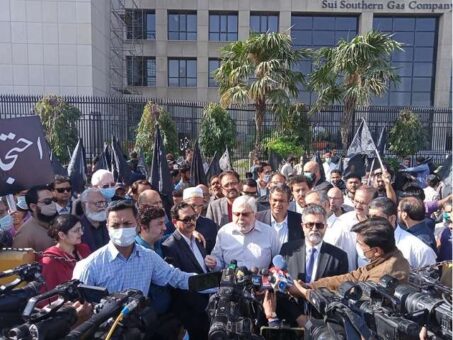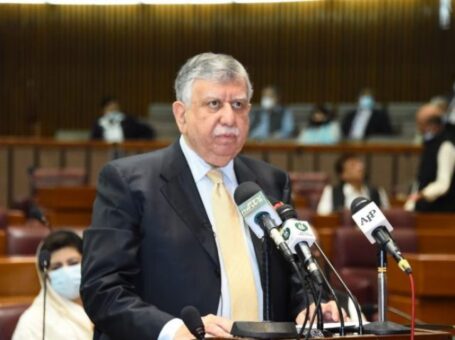ISLAMABAD: The Federal Board of Revenue (FBR) on Wednesday postponed the implementation of new and revised valuation of immovable properties till February 28, 2022.
The FBR said that new and revised valuation tables of immovable properties issued on December 01, 2021 would remain in abeyance till February 28, 2022 and those valuation tables would be re-notified on March 01, 2022.
The FBR on December 01, 2021 issued fresh and updated valuation tables for around 40 major cities of the country. However, the FBR deferred the implementation of the new valuations of immovable properties till January 15, 2022 and further deferred till January 31, 2022.
The FBR on December 01, 2021 issued fresh and upward revised valuation tables for immovable properties located in 40 major cities of the country.
READ MORE: FBR issues new, revised tables of property valuation
The revenue body decision to defer the implementation came after several complaints received by the FBR those were pertaining to high valuation in the new tables.
The complaints were lodged by stakeholders including real estate agents and town developers, who pointed out extraordinary rise in property rates in the latest valuation tables.
The FBR issued detailed instructions to the tax offices on the procedure to be adopted to review the anomalies in the property rates and rationalize the same.
READ MORE: FBR’s new, old valuation tables for Karachi properties
Accordingly, it has been decided to review and revisit the notified valuation tables wherever overvaluation or undervaluation is pointed out by a stakeholder.
The FBR asked all the Chief Commissioners Inland Revenue (CCIRs) to constitute Valuation Review Committees (VRCs), and notify them by December 10, 2021.
Any stakeholder having any reservations about valuations may lodge a representation before VRC by December 15, 2021. Chief Commissioners will undertake consultative process with the stakeholders and engage SBP’s approved valuers for determination of values, which could be either more or less than the lately notified valuations.
To issue the fresh and revised valuation tables, the FBR exercised its powers vested in the Income Tax Ordinance, 2001. The aim was to bring the FBR values at par with the fair market values.
However, certain objections from stakeholders highlighted anomalies and aberrations in the newly notified valuation tables. Although, the notified valuations have been arrived at by FBR Field Formations through a rigorous consultative process and wherefore have largely been well-received, yet the possibility of error cannot be ruled out, and the same cannot be taken as carved in stone.
The VRCs shall decide upon the representations by January 10, 2022, and forward the same to FBR for notification. All recommendations made by VRCs vis-à-vis revaluations shall be re-notified on January 15, 2022, which shall come into force on January 16, 2022. In the meantime, SRO No.1534-1572(I)/2021 dated 01.12.2021 are held in abeyance to allow registration of the in-process transactions.







